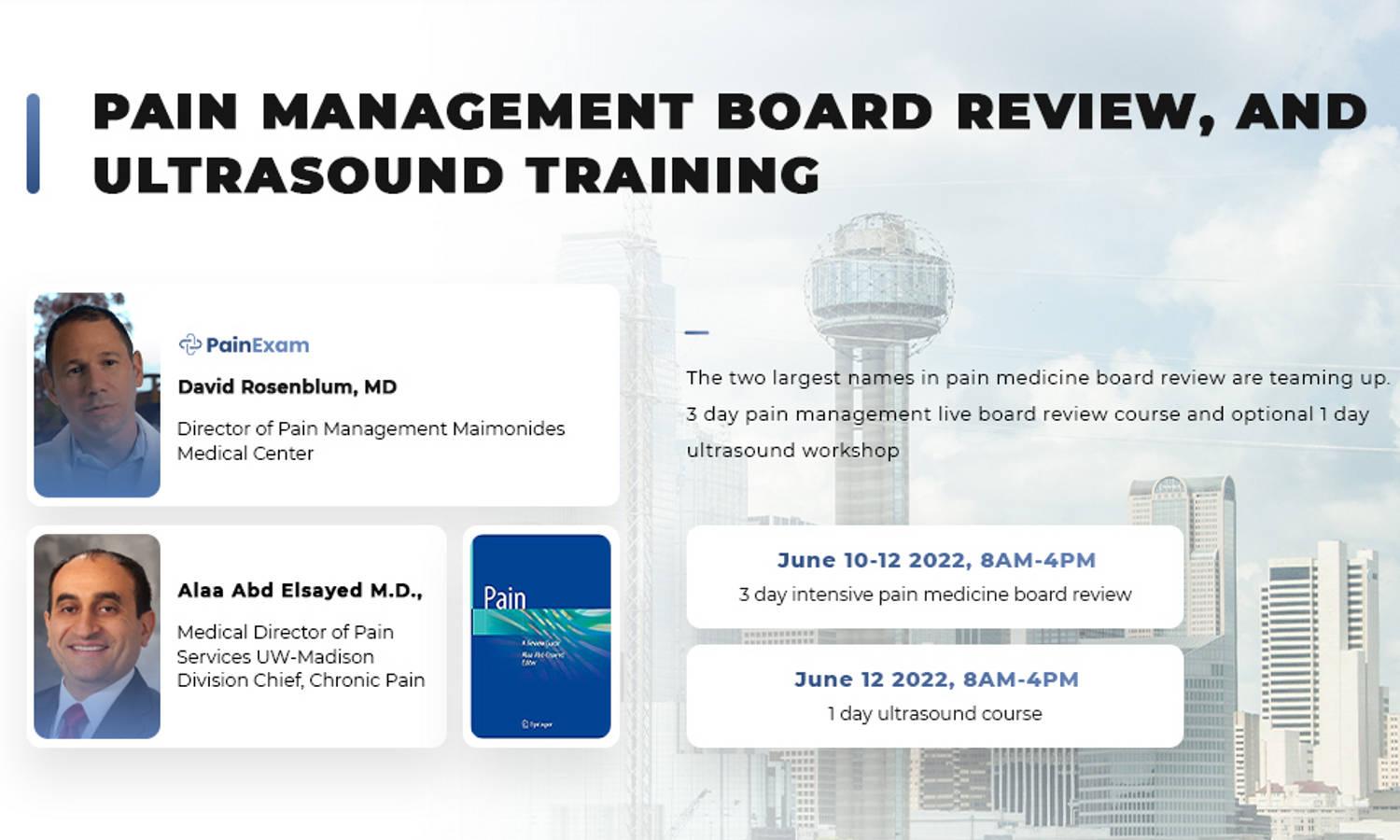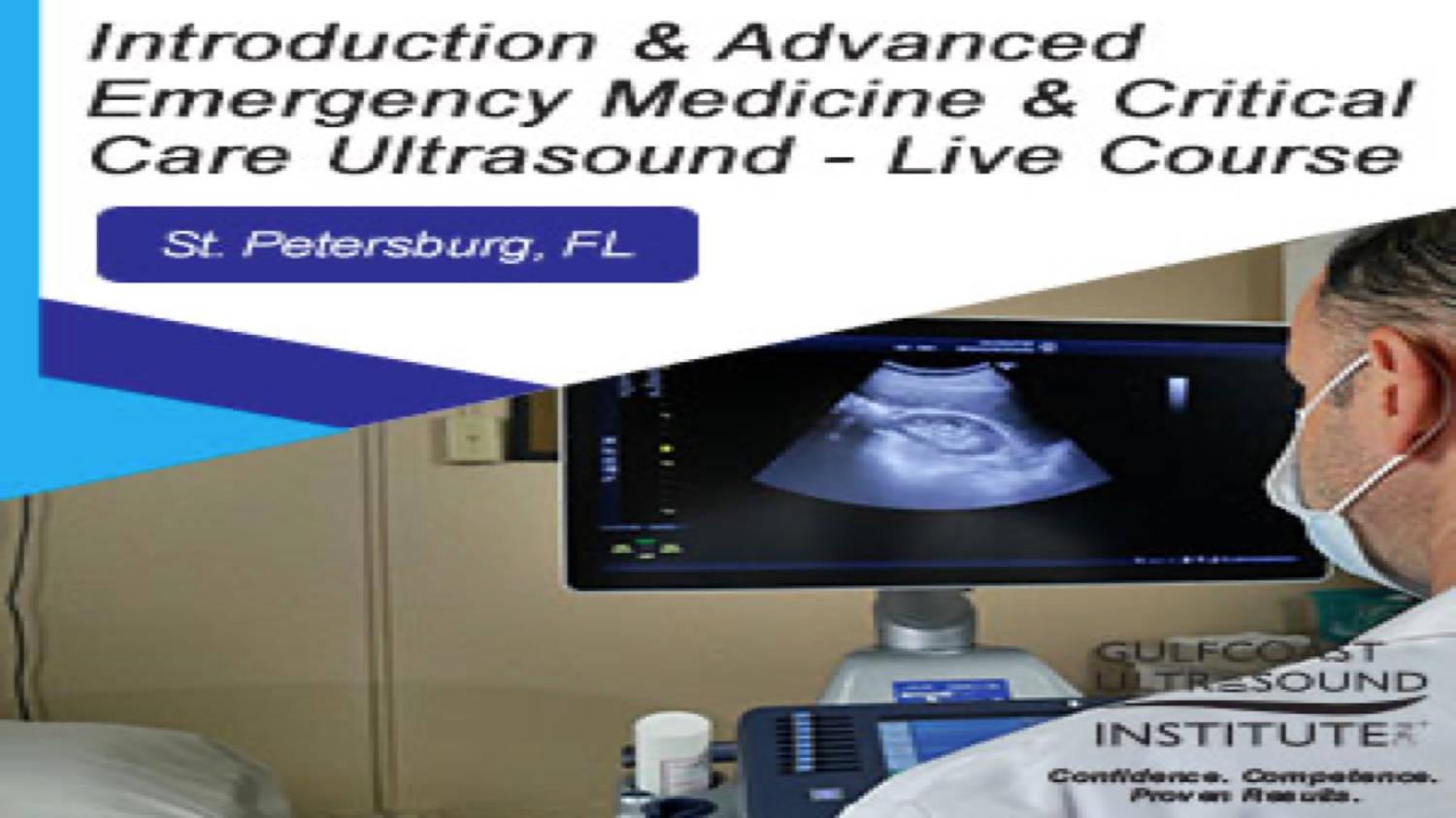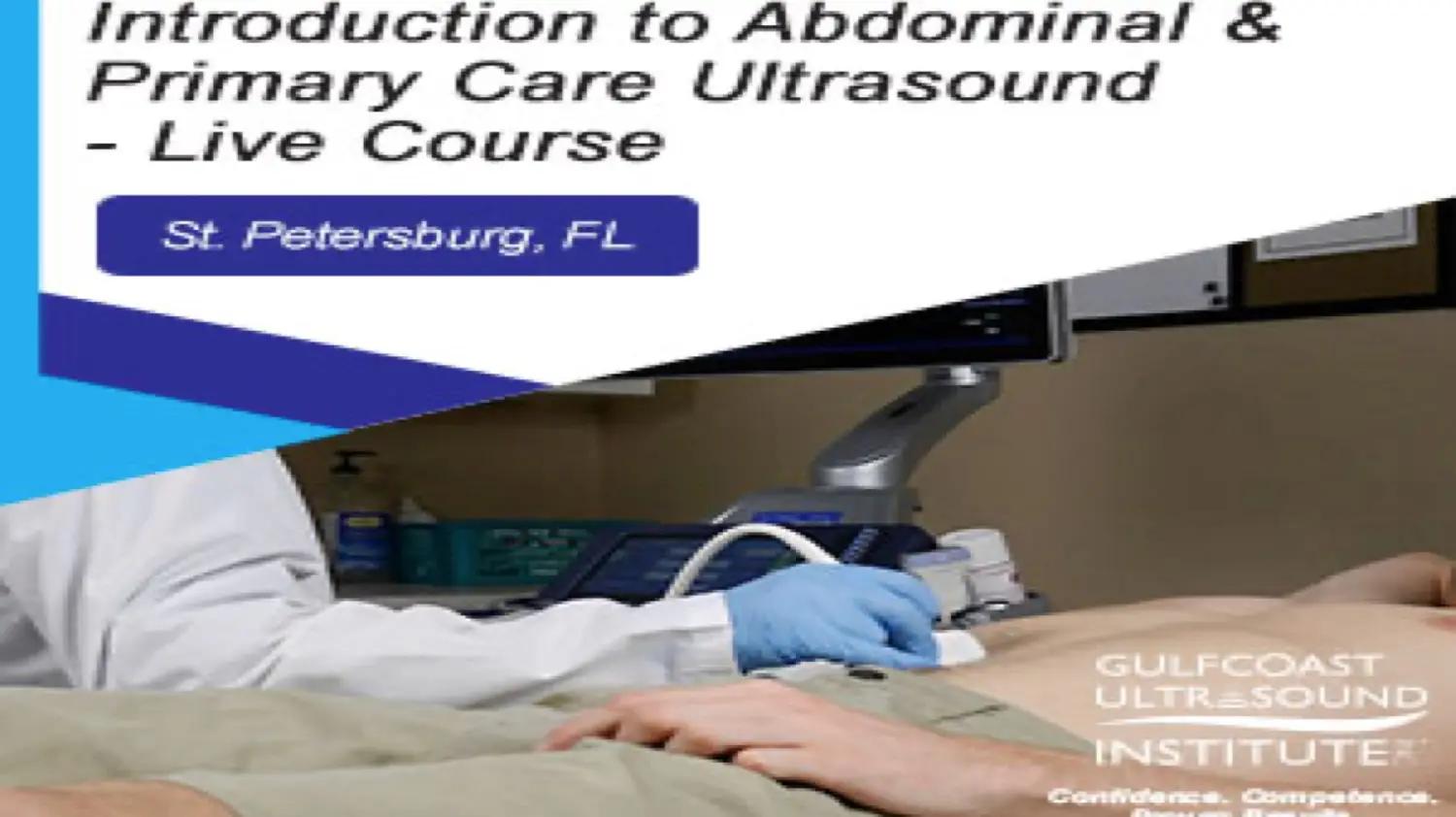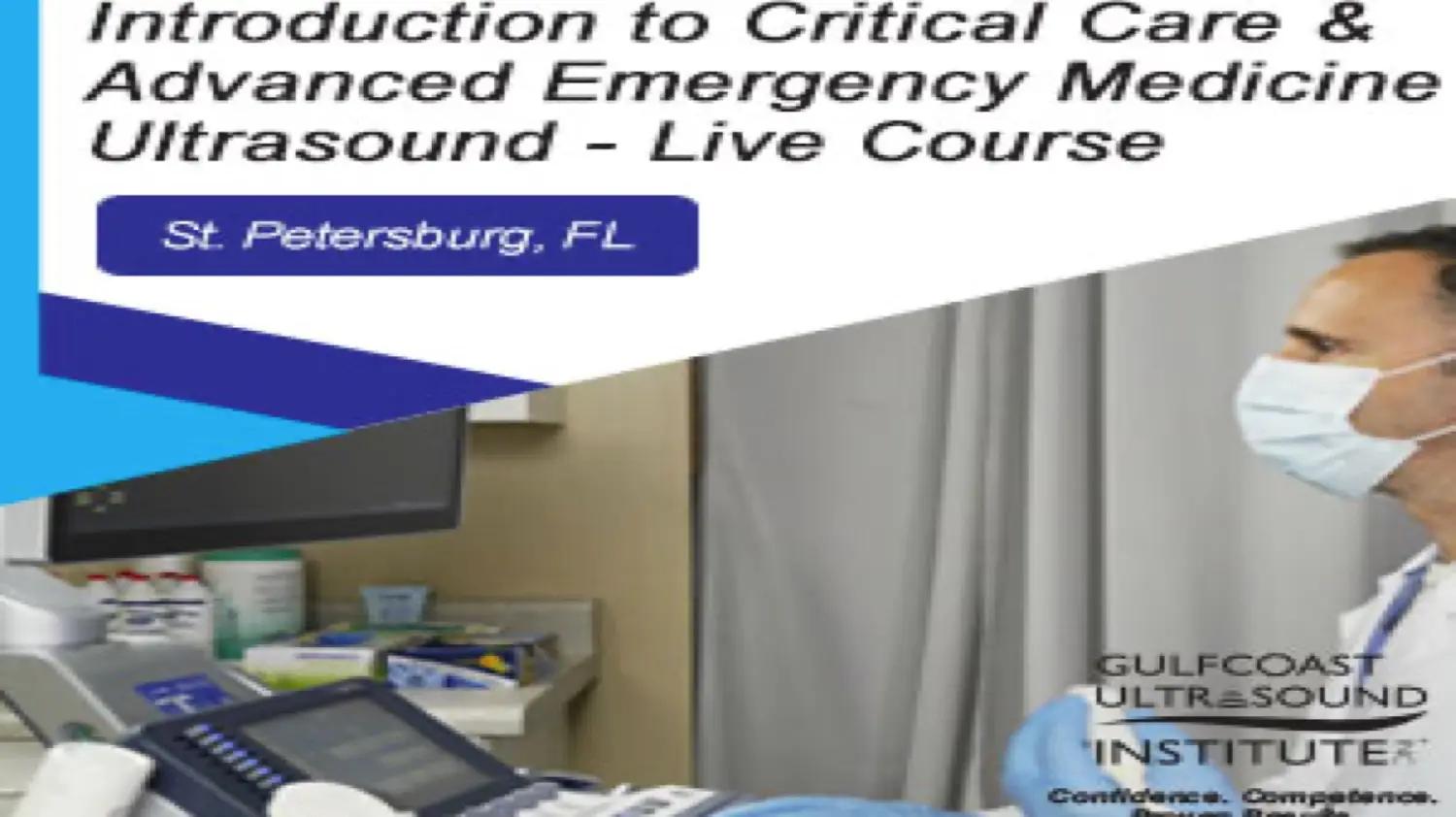
POCUS Renal/Genitourinary Certificate Review
POCUS Renal/Genitourinary Certificate Review is organized by Gulfcoast Ultrasound Institute (GCUS) Inc..
Date of Original Release: 5/12/2023
This edition is valid for credit through 5/12/2026
1 year/365 days of Unlimited Access from the date of purchase. Expires on 10/31/2024 if purchased today.
Description:
POCUS Renal/Genitourinary Certificate Review Online Course is specifically designed for any medical professional (Physician, Advanced Practice/Mid-level Provider, Sonographer, etc.) who has an interest in earning the POCUS Renal/Genitourinary Certificate and integrating/performing point-of-care Renal/Genitourinary ultrasound examinations in clinical practice. The POCUS Certificates and Certifications are NOT just for physicians!
• The Online Review Course covers all concepts pertaining to the POCUS Renal/Genitourinary Certificate Clinical Case Assessment and is designed to streamline the process of successfully earning your POCUS Renal/Genitourinary Certificate.
• This self-directed course contains four (4) comprehensive modules comprised of online video lectures, case presentations, and post-activity quizzes in Gulfcoast Ultrasound Institute’s structured, easy-to-use online Learning Management System.
• 12 months (365 days) of unlimited access is provided from the date of purchase, and 4.25 AMA PRA Category I Credits™ are optional for an additional CME processing fee.
• This online review course will help reinforce a strong foundation to perform the core ultrasound applications as outlined in the ACEP, WINFOCUS, and ACR ultrasound practice guidelines and is taught by leading point-of-care ultrasound expert faculty.
If you want to earn your POCUS Renal/Genitourinary Certificate and become one of the leaders in Point of Care Ultrasound, this Online Review Course will provide you the best value, knowledge base, and assessment review available anywhere!
Learning Objectives:
• Outline the interaction of sound with soft tissue and other mediums.
• Demonstrate the relationship between system controls and image quality.
• Select the appropriate type of transducer for each respective clinical application.
• Identify different types of imaging artifacts.
• List anatomical landmarks of the abdomen
• State transducer scan planes & relational anatomy
• Outline sectional anatomy of the abdomen, Vasculature, organs, and potential spaces
• Recognize the normal size, echogenicity & texture of the abdominal organs
• Recognize normal ultrasound characteristics associated with the kidneys and urinary bladder
• Identify commonly seen pathology associated with the renal/genitourinary system.
• Outline clinical decision-making related to renal/genitourinary ultrasound findings.
• Identify common technical pitfalls
• State the indications for performing a scrotal ultrasound exam in the emergency setting
• Outline scan protocols for evaluating the acute scrotum.
• Recognize normal scrotal anatomy and possible anatomical variants
• Identify emergency ultrasound scrotal conditions and commonly seen scrotal pathology.
Topics:
• Ultrasound Imaging Fundamentals
• Abdominal Scanning Fundamentals
• Abdominal Cases in Emergency Medicine – Renal Colic
• Point of Care Sonography of the Acute Scrotum
Additional details will be posted as soon as information is available.










